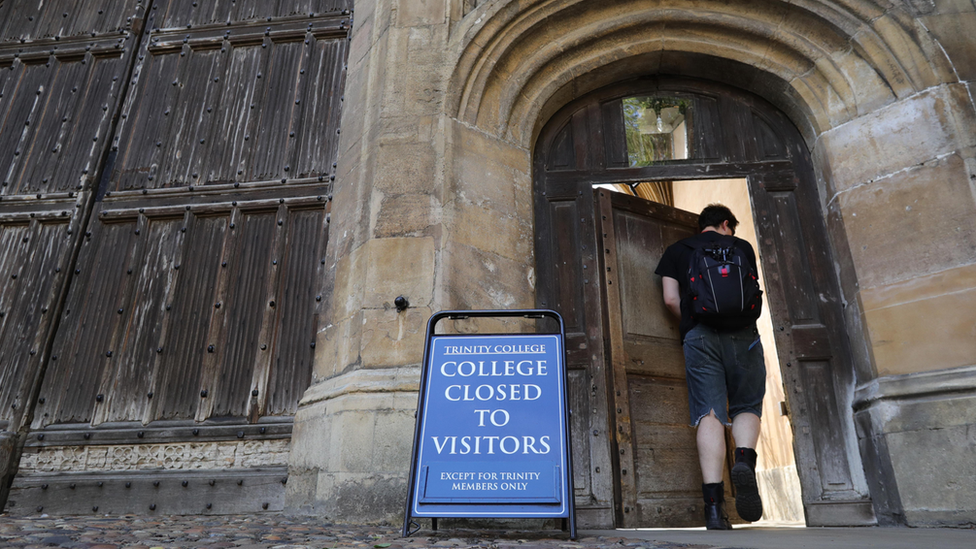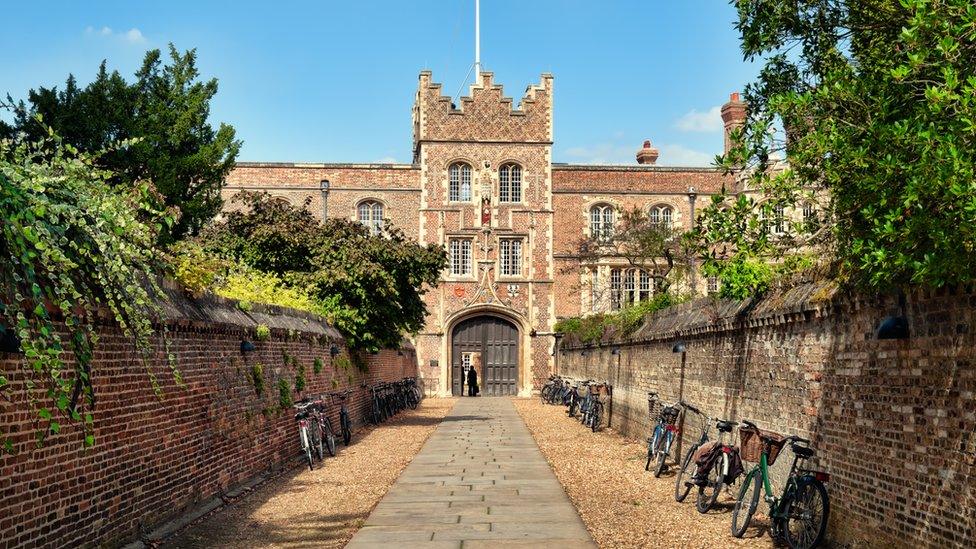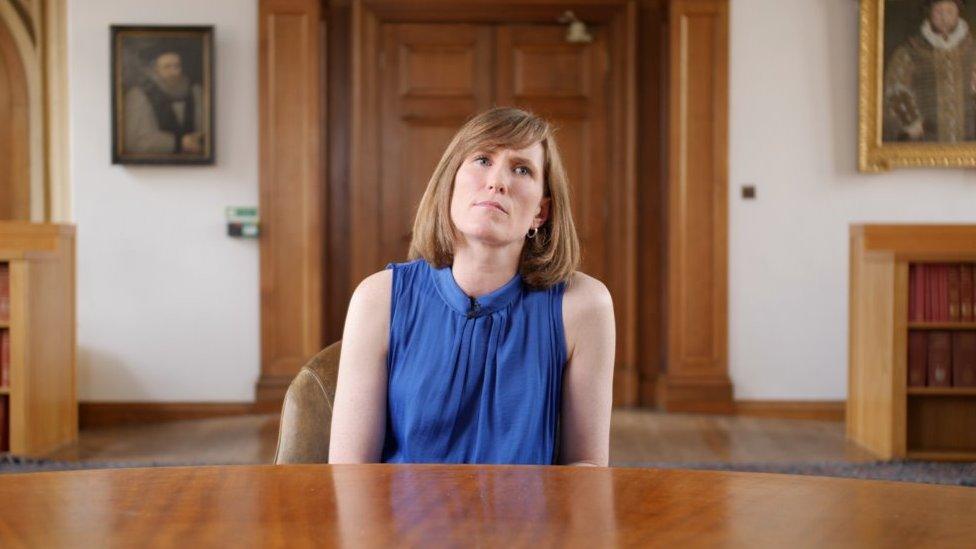Cambridge University's mental health service ineffective, says report
- Published

The university has been reviewing the deaths of five students since March
Cambridge University's mental health services were branded "ineffective", "untargeted" and "unsustainable" in a draft report seen by the BBC.
Five Cambridge students have died since March, with one confirmed as suicide and four suspected to be suicides.
Prior to the deaths, a review of the university's mental health services found there were "likely to be significant inefficiencies".
The university said it had "embarked on a significant programme of change".
It is not known whether the students who died had used the university's mental health services.
Cambridge University students feel let down over mental health
The BBC has also been contacted by about a dozen current and former students with experience of those services, whose concerns include the "fitness to study" procedure, which can be initiated after somebody tries to kill themselves.
Students said none of the procedure's panel deciding upon their future studies were mental health specialists, with one student stating they "felt like probation hearings, like I was on trial, talking to complete strangers about stuff I hadn't properly unpacked with a therapist yet".
A former student said her overall experience of mental health support left her with the impression that "as far as college were concerned, if I were to die they wanted it to be not on their property".
"It seemed that no steps were taken to actually look after me, the steps that were taken were to protect the reputation of the college and their liability in case anything were to happen," she said.
If you are feeling emotionally distressed, help and support is available via BBC Action Line
Head of student wellbeing, Natalie Acton, told the BBC the university commissioned a "strategic review" into mental health provision "because we wanted to be really confident that what we were doing was the best we could possibly do for our students".
A draft final report by external reviewer SUMS Consulting, from September, found that the "current approach is uncoordinated and there is no clarity of purpose or definition of the university's role, aims or limits in its support for student mental health and wellbeing".
Its findings included:
Increasing staff and student dissatisfaction with the system, "evidenced by the findings from multiple reviews over the past few years, including this one"
The absence of both a university-wide suicide prevention and response strategy and a central out-of-hours crisis service were "pressing" areas highlighted in previous reviews
The lack of a crisis service "carries significant risk to the university, including of increased incidence of student suicide and near-misses"
"Inadequate" data collection and information sharing, with support being "delivered in silos"

More students are accessing Cambridge University's mental health services
The university spends £4.5m a year on mental health services, and the review found it was one "of the biggest spenders on student mental health and wellbeing support in the sector".
"Costs are high and, without a clear plan, will continue to spiral given the projected continuing increase in mental health problems in young people and consequent increase in student demand for support," the draft report said.
56%The number of university counselling appointments rose from 7,544 to 11,800 in a four-year period.
4.95The average number of appointments attended per student using the service in 2020-21.
The review said there were "wide variations" of support levels between the university's 31 colleges, and that "senior tutors, tutors and other college staff with a welfare role are overstretched and are dealing with often significant issues and a high level of demand and risk".
A student told the BBC that while they felt supported within their own college, "it just isn't fair that it's been available for me when it hasn't been for other students at other colleges within the same university".
If students self-refer to the University Counselling Service they are seen for up to four sessions then either discharged, directed to group therapy or encouraged to use a charity fund for longer-term therapy.
"However, this is ineffective as many students 'bounce back' to UCS (33%) or (anecdotally) move around different sources of provision offered across collegiate university," the review said.

The review said there was "increasing levels of staff and student dissatisfaction with the current system"
The review found there needed to be a "more cost-effective alternative response to simply providing students with one-to-one counselling" either through UCS or in-house college provision.
"This current approach is ineffective and unsustainable given the forecast increases in levels of need for support and the corresponding growth in costs (and the need for some limit to costs).
"This current approach does not discern between varying levels of student need, is untargeted and is unsustainable."

Natalie Acton said the university had seen "unprecedented" increases in students coming to Cambridge with mental health problems
In response to the findings of the review, Ms Acton told the BBC: "We have seen unprecedented increases in the numbers of students coming to Cambridge with mental health problems and the numbers accessing our services once they get here, and we really encourage students to come forward.
"We now have a significant programme of reform across the colleges and university to make sure we're doing everything we possibly can, but that's a journey. It's a journey that our students are very much engaged with and we constantly consult our students on this."
She said as a result of the review they wanted to "make sure that for every student there is a minimum base line of support they can access".
"In colleges that will include each having an academic who can support them in terms of their wellbeing but they will also have a wellbeing practitioner who will be able to work with them to prevent mental health problems becoming difficult," she said.
Ms Acton added they were developing training for staff across the university, having a "much stronger relationship" with the local NHS and from October will have an out-of-hours support line to enable staff supporting students in crisis to contact mental health professionals.

Find BBC News: East of England on Facebook, external, Instagram, external and Twitter, external. If you have a story suggestion email eastofenglandnews@bbc.co.uk, external
Related topics
- Published11 July 2022

- Published18 January 2022
